US Military Destroys Houthi Missile Launchers in Yemen
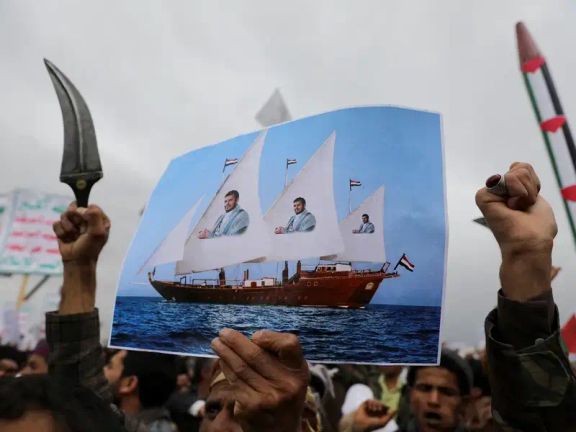
US Central Command (CENTCOM) announced the destruction of two anti-ship cruise missile (ASCM) launchers operated by Houthi forces in Yemen.

US Central Command (CENTCOM) announced the destruction of two anti-ship cruise missile (ASCM) launchers operated by Houthi forces in Yemen.
The operation, which occurred within the last 24 hours, targeted the missile launchers due to their “imminent threat to US and coalition forces and coalition forces and to merchant vessels transiting the region” amid the Iran-backed proxy’s Red Sea region blockade.
Global shipping has been targeted by the group, resulting from a claim of allegiance to Iran-backed Hamas in the midst of the Gaza war. Beginning as a campaign to target Israeli linked vessels it has since gone global with dozens of civilian seamen held captive.
The targeted missile launchers were located in a Houthi-controlled area. The Houthis, backed by Iran, have increasingly targeted international shipping in the Red Sea since November, following directives from Iran’s Supreme Leader Ali Khamenei to impede Israeli commerce.
The aggressive actions have precipitated a series of retaliatory strikes by US and British forces since February as the conflict expanded to affect broader international shipping interests.
The Houthis’ actions have severely disrupted global shipping, impacting at least half of the world's cargo flow through the critical Bab al-Mandab Strait and the Gulf of Aden. As a result, numerous shipping companies have been forced to reroute their cargo around southern Africa, significantly increasing global shipping times and costs.
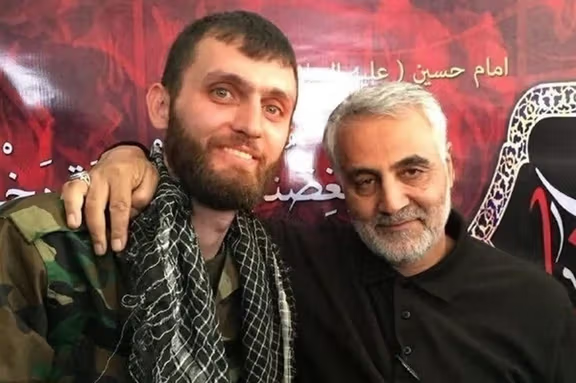
Iran says Iraq has rejected US request to extradite Mohammadreza Nouri, a Revolutionary Guard officer who has been sentenced to life imprisonment for the murder of an American in Iraq.
Kazem Gharibabadi, the deputy of Iran's Judiciary for International Affairs denied the allegations against Nouri on Monday, describing the member of IRGC’s extraterritorial Quds Force as "defender of the shrine."
The Islamic Republic refers to its forces sent to Syria as defenders of the shrine of Zeynab, the sister of the third Shiite Imam. Nouri also holds Syrian citizenship , where he was known by his nom de guerre "Abu Abbas."
According to Iran International's sources, after the war in Syria, Nouri went to Iraq, where he used his connections to secure commercial contracts for companies affiliated with the IRGC. Nouri, along with a member of the Iraqi Harakat Hezbollah al-Nujaba militant group, pressured businesses into cooperation with the IRGC, threatening them that if they did not sign contracts, they would face repercussions from Nujaba. According to information obtained by Iran International, Nouri, was previously arrested in Iran on charges of espionage. Our sources did not provide further details about his prior conviction in Iran.
Gharibabadi claimed that Washington had requested his extradition, but Baghdad rejected it. Although the Islamic Republic and the Iraqi government have signed an extradition treaty, Iraq has so far also refused to transfer Nouri to Iran.
"Through legal and judicial efforts, the charges against Mohammadreza Nouri changed from terrorism-related offenses to other charges, creating the legal basis for his transfer to Iran," Gharibabadi said.
Nouri was arrested along with four Iraqi nationals for killing American national Stephen Troell in Baghdad. The five were sentenced to life in prison in September 2023. Nouri’s identity had not been released to the media at the time.
Troell, an English teacher, was shot dead by at least two gunmen while driving through Baghdad’s Karrada district in November 2022. According to a source cited by Reuters, the murder was orchestrated by Nouri, along with his Iraqi accomplices. Troell, a 45-year-old Tennessee native, worked at the Global English Institute, a school managed by his wife, Jocelyn. They had lived in Iraq’s capital along with their three daughters and a toddler son.

“It is critical that all those responsible for the brutal, premeditated assassination of Mr. Troell face justice and accountability,” said State Department spokesperson Matthew Miller in a statement after the verdict was issued. “We welcome the Iraqi court’s decision to convict and sentence multiple individuals on terrorism charges for their roles in the killing of US citizen Stephen Troell.”
Citing a judicial source, AFP said that the five confessed to the murder, noting that they had intended to kidnap Troell for ransom. Karrada was also the site of the kidnapping of Elizabeth Tsurkov, an Israeli-Russian abducted by Iran-backed militant group Kata'ib Hezbollah last June. Tsurkov was a graduate student at Princeton University conducting research in Iraq.
According to Al Arabiya, a militant group called Ashab al-Kahf, (Companions of the Cave) claimed responsibility for Troell’s assassination, saying that it was a retaliation for the targeted killing of IRGC-Quds Force commander Qasem Soleimani and Abu Mahdi al-Muhandis, the commander of Iraq’s Popular Mobilization Forces (PMF), by the United States in 2020.
Nouri’s case made news in Iran in May, when late Foreign Minister Hossein Amir-Abdollahian met with his wife and father, emphasizing that efforts are underway for his release.
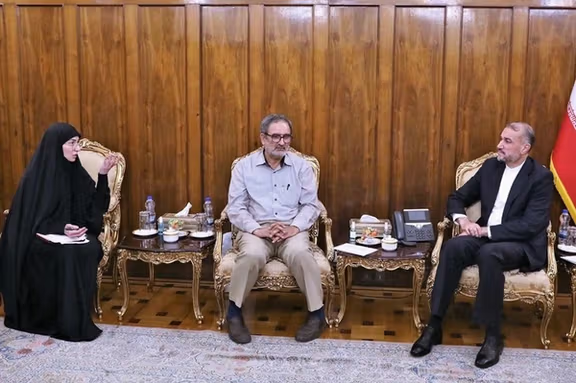
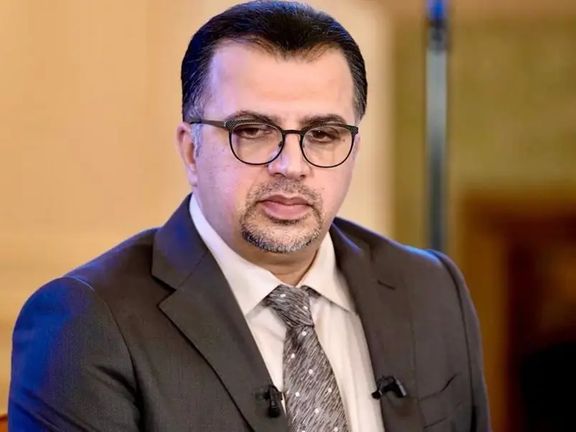
Mehran Abbasian, a reporter for Iran International TV, has been moved to a secure location following threats to his life, after similar threats against the channel’s journalists in the UK beginning in 2022.
The Swedish police have classified the threats as "serious and real," underscoring the dangerous conditions faced by those critical of the Iranian government, at home and abroad.
It comes on the back of revelations last month of Iran recruiting Swedish gangs to carry out such plots abroad, including on Jewish and Israeli targets. Israeli intelligence agency, Mossad, also confirmed the reports saying Swedish gangs were part of a Europe-wide plot from Tehran against Israeli embassies.
The threats against Iran International staff have become a recurrent issue, stemming back to 2022 when London's Metropolitan Police revealed plots against staff in London. Last year, the threats reached a climax with the UK's MI5 saying it could no longer protect the team, forcing a temporary relocation to the US.
Kazem Gharibabadi, head of the Iranian Judiciary's Human Rights Headquarters, recently branded the network as "terrorist" and directly threatened its staff. The statement followed shortly after condemnation from UN experts regarding the ongoing threats and acts of violence against Iran International's personnel, including a violent knife attack on presenter Pouria Zeraati.
The Swedish Ministry of Foreign Affairs has recently acknowledged that Iran's terror plots across Europe and its involvement with criminal networks in Sweden are “deeply concerning.”
"It is deeply concerning that a foreign power, in this case, Iran, has allegedly used criminal networks to commit or instigate crimes in Sweden. The Ministry for Foreign Affairs has summoned Iran’s chargé d’affaires to stress how seriously we are taking this information," the Swedish Ministry for Foreign Affairs’ Press Office told Iran International on Sunday.
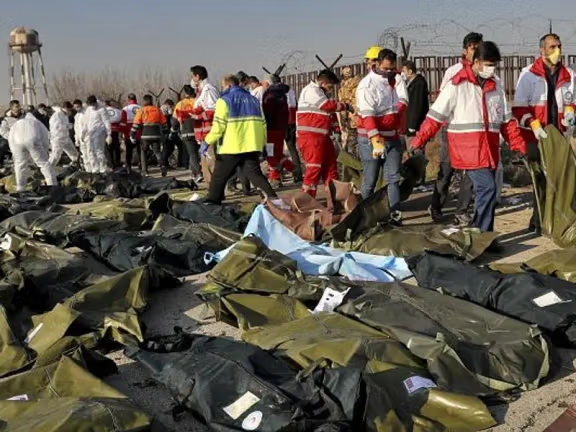
A court in Ontario has found that Ukraine International Airlines failed in its duty to cancel flight PS752 in 2020 that took off from Tehran amid military activity and was downed by the IRGC killing 176.
This judgment does not absolve the IRGC from responsibility in the downing of the aircraft. The Ontario Superior Court of Justice earlier labeled the missile strike by the IRGC as "terrorist activity" and dismissed claims by Iran that the downing was a mere "human error."
The judgement on Monday found, that despite the IRGC's deliberate firing of two missiles at the airliner, the company could not prove that it acted according to standards to cancel the flight amid potential military activities in the early hours of January 8, 2020.
“I declare that the defendant has failed to prove, on a balance of probabilities ... that the plaintiffs’ damage was not due to the negligence or other wrongful act or omission of the carrier or its servants or agents; or that such damage was solely due to the negligence or other wrongful act or omission of a third party,” said Justice Jasmine Akbarali on Monday.
Legal expert Paul Miller commented on the verdict, stating, "This verdict sends a strong message to international airlines that passenger safety must always be their top priority. Airlines must take proper measures to avoid operating in conflict zones.”
The judgment now means that under the Montreal Convention, UIA cannot limit compensation to $180,000 USD per passenger but must pay full compensatory damages for the fatalities, a small victory for the families of victims who are still seeking justice for Iran's act of shooting down the plane.
Iran failed to close its airspace during the hours when it launched the attack and was expecting a US retaliation. Later, when it was proven the airliner was downed by two IRGC missiles, Iranian officials argued that it was human error due to the tense situation prevailing in the aftermath of the attack on US bases.
The incident claimed the lives of 176 people, including 63 Canadians, 10 Swedes, and 82 Iranians. Flight PS752 was hit by two IRGC air-defense missiles shortly after departing from Tehran's Imam Khomeini International Airport.
When it was proven the airliner was downed by two IRGC missiles, Iranian officials argued that it was human error. They have also prevented an independent investigation of the incident and disclosing full details. For three days after the incident, they hid the fact that the plane was shot down, insisting that the crash was an accident.
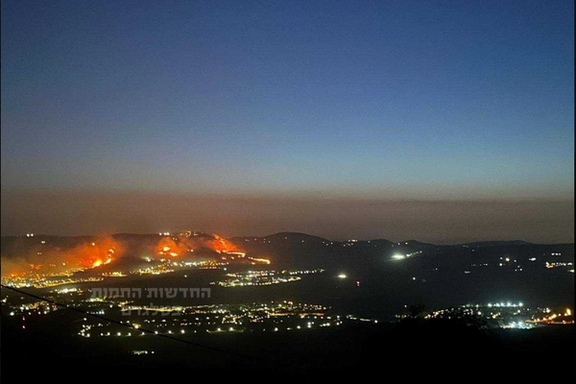
Northern Israeli residents who face daily attacks from Iran-backed Hezbollah say their lives have turned into "hell", and view the Islamic Republic of Iran as responsible.
Hezbollah launched anti-aircraft missiles at Israeli fighter jets over southern Lebanon on Sunday, according to the Israel Defense Forces (IDF), as cross-border skirmishes between Israel and the Iran-backed terror organization intensify.
Incoming rocket alerts were also activated in the northern coastal region of Acre overnight Monday, the IDF said in a statement.
The drones and anti-tank missiles launched caused fires and damaged buildings in northern Israel. This came just a week after Hezbollah rockets sparked days of wildfires in northern Israel, with a forest reserve destroyed and at least 11 people hospitalized for smoke inhalation.
Since October 7, clashes between Israel and Lebanon have escalated, with 150,000 people on both sides of the boundary forced to flee their homes. Recent attacks have increased the fears of full-scale war.
For Northerners in Israel, everyday life is a battle, Israeli resident Ofri Eliyahu Rimoni told Iran International. "Life is a living hell' for people of the North," she told Iran International.
"Alarms four or five times a day, telling us to go to shelters to stay there. A lot of people was displaced from their homes and the people who didn't get displaced from their homes, they are right now living in a war zone. Literally a war zone," she said.
She said agriculture is the main industry in the region and the wildfires set off by Hezbollah attacks are devastating the local economy as people risk their lives just to work in the fields.
"Your whole life burning down. It's burning my heart," said Rimoni.
Israeli Prime Minister Benjamin Netanyahu threatened further military action after the onslaught of Hezbollah attacks in the North.
While touring the damage from the fires in the northern city of Kiryat Shmona last week, Netanyahu said that Israel was preparing for “very intense action in the north.”
“One way or another, we will restore security to the north,” Netanyahu said.
60,000 people, who previously called the North their home, are living in hotel rooms scattered across Israel.
On June 5, at least 11 people from a Druze Arab village of Hurfeish in northern Israel were injured after Hezbollah launched an armed drone attack. One person was reportedly in critical condition after the exploding drones crashed into a soccer field. 39-year-old First Sergeant (res.) Refael Kauders was killed.
On Telegram, Hezbollah took credit for the attack, claiming the attack was in response to an Israeli strike on June 4 that killed a Hezbollah operative in the southern Lebanese town of Naqoura.
Mufid Mari, a former Knesset member and retired IDF Colonel is from the Druze village of Hurfeish that was hit. He said life is not normal, with tourism at a standstill in the north and the Hezbollah attacks impacting factories and day-to-day life.
Mari said Druze villages are especially vulnerable to Hezbollah attacks because 40 percent of their homes are old and are not equipped with safe houses to protect them against rockets. When the sirens sound, the goal is to move as quickly as possible, in a matter of seconds, to the safe room.
"All of us in the Middle East, we want and need to be living in peace," said Mari.
Mari said the daily attacks are intolerable and he believes they need to get ready for a large-scale war with the Iran-backed proxy.
Israeli security expert Sarit Zehavi said Northerners in Israel are expecting a Hamas-style attack in the region. Zehavi said more than a decade ago, Hezbollah published its offensive plan for an attack on Israel - and she described its similarity to what Hamas did to southern Israel as “astonishing.”
The anticipated attack hasn't happened yet, she believes, because tens of thousands of residents have already evacuated. She said most of the attacks are in evacuated areas, but in the recent weeks there were more attacks on areas which are further from the border with Lebanon.
"These are exactly the areas that the UAVs and the anti-tank in the rockets aim to and this is every day," said Zehavi.
Zehavi, who served 15 years as an intelligence officer in the IDF said "the evacuated towns have no prospect when they will be able to come home. They just don't know how this is going to play out. And it's so sad to see the beautiful valley empty like this."
Zehavi said all roads lead to Iran.
The founder of the Alma Research Center which monitors and disseminates information on the threats faced in the North, referred to Iran as the 'engineer' and the 'architect' behind everything happening.
"This is all part of the same campaign under the title 'unification of fronts.' The idea of unification of fronts is to create a multi-front campaign against the State of Israel by these proxies."
It is widely believed that Iran supports Hamas with $1 billion a year. The Islamic Republic also supports Palestinian Islamic Jihad with tens of millions and is providing Hezbollah with 70 per cent of its budget - and its ideology.
Hezbollah opened a battle front with Israel on Oct. 8, a day after the deadly Hamas attacks in Israel.
While the US and France have been trying to find a diplomatic solution to the conflict, Northerners in Israel say they just want to have their lives back.
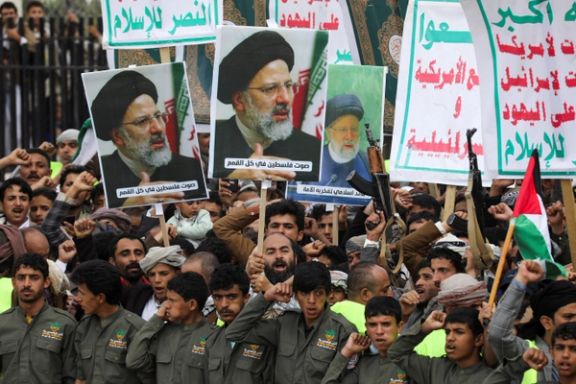
The US has issued the seventh round of sanctions aimed to strangle Iran’s Yemeni Houthi militia amidst its blockade of global trade in the Red Sea region.
The Department of the Treasury’s Office of Foreign Assets Control (OFAC) announced on Monday that it is sanctioning a network under the control of Houthi financial facilitator Sa’id al-Jamal in a bid to strangle the terror group’s commercial power as it disrupts global shipping in the key trade route.
The latest round includes 10 individuals, entities, and vessels, including tanker captains, engaged in the illicit transport of oil and other commodities for Iran’s Houthi militia.
“The Houthis continue to leverage an expansive support network to facilitate their illicit activities, including hiding the origin of cargo, forging shipping documents, and providing services to sanctioned vessels,” said Under Secretary of the Treasury for Terrorism and Financial Intelligence Brian E. Nelson.
“As we demonstrated with our military strikes last week, the United States government is committed to disrupting and degrading the Houthis’ ability to engage in attacks against commercial shipping and naval vessels, as well as target those who seek to facilitate these activities.”
The OFAC designated Sa’id al-Jamal in 2021 for having supported the Houthis and its illegal trading network in order to fund Iran’s Islamic Revolutionary Guard Corps Qods Force (IRGC-QF), which was designated by the US in 2007 for its support of terror groups.
The Houthis were re-designated by the US in January after three months of a blockade by the terror group saw US shipping targeted with a series of attacks. The blockade began in November after orders from Iran’s Supreme Leader, Ali Khamenei, to blockade the trade route, targeting Israeli-linked ships in support of the Iran-backed Hamas war in Gaza.
In retaliation to the Houthi blockade, the US and UK have launched direct attacks on Houthi infrastructure in Yemen with the US leading a more than 20-nation coalition to battle Iran’s proxy armed with state-of-the-art missiles and drones. In February, the action led the Houthis to declare both the US and UK targets in its blockade which began against Israel.
The latest sanctions span multiple countries including India and China as the Houthis utilize a global network of money laundering operations which have also aided Iran’s largest proxy, Hezbollah, in Lebanon, in transporting sanctioned goods.
Among the companies sanctioned is Hong Kong-based Lainey Shipping Limited, for its role in carrying sanctioned cargo on behalf of Hezbollah-owned and OFAC-designated Concepto Screen SAL Off-Shore to Southeast Asia.
Among the individuals sanctioned is Ahmad al-Jamal who has managed millions of dollars worth of currency transfers to Yemen as part of massive money laundering operations for the Sa’id al-Jamal network.
In January, shortly after the US designated the Houthis a terror group, the UK and US issued joint sanctions against four senior Houthi officials following attacks on British and American merchant vessels and their civilian crews, among other rounds of sanctions since the blockade began.
Dozens of civilian seamen have been taken hostage since the blockade began in November with little outcry from the international community and just two days ago, 11 UN workers were taken hostage in Yemen.